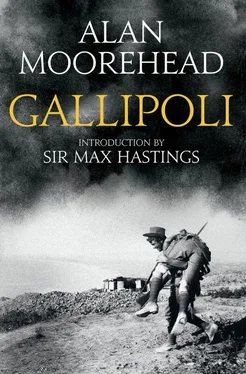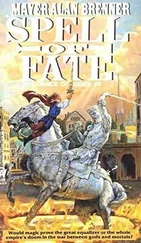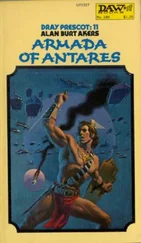Nothing happened. Fusillades of shots broke out and died away. Men fired at shadows. A light rain began to fall. Confused, exhausted, isolated in the small circle of their own experiences, the soldiers waited for the morning.
Hamilton on board the Queen Elizabeth made a 5,000-word entry in his diary that night. In the course of it he wrote: ‘Should the Fates so decree, the whole brave Army may disappear during the night more dreadfully than that of Sennacherib; but assuredly they will not surrender; where so much is dark, where many are discouraged, in this knowledge I feel both light and joy. Here I write — think — have my being. Tomorrow night where shall we be? Well; what then; what of the worst? At least we shall have lived, acted, dared. We are half way through — we shall not look back.’
There were on the whole, he decided, fair grounds for optimism. Hunter-Weston should certainly be in a position to attack towards Achi Baba on the morrow. Reassuring messages had been coming in from Birdwood through the afternoon: he was engaged in heavy fighting all along the Anzac front, but 15,000 men had been landed there during the day. They should certainly be able to hold on. Not the least cheering news had come in from the French, who, remote from all the world, had been fighting a private battle of their own on the Asiatic side of the Straits. They had gone ashore a little late but in grand style near Orkanie Mound (the reputed tomb of Achilles), with a regiment of native African troops, and with a spirited bayonet charge had actually seized the ruined fortress of Kum Kale. That operation, at least, had been a complete success. The French, having completed their diversion, were ready now to be re-embarked and landed as reinforcements for the main offensive at Cape Helles. For a while Hamilton pondered the wisdom of this: since they had done so well should they not remain? But in the end he decided to stick to the plan; Kitchener had forbidden him to fight in Asia. [14] The French actually forced the Turkish garrison at Kum Kale to surrender that night and when they were taken off on the following day they brought 450 Turkish prisoners with them.
So then, in general, things were not too bad. Except at Kum Kale, none of the first day’s objectives had been taken, but they were ashore with nearly 30,000 men. Along the whole front there had been frightful casualties, but that was to be expected on the first day and no doubt the Turks had suffered heavily as well. At all costs they must push on both from Anzac and Helles as soon as day broke.
Heartened by this review of the situation Hamilton went to his cabin towards 11 p.m. and fell asleep.
He was woken an hour later by Braithwaite shaking him by the shoulder and calling, ‘Sir Ian. Sir Ian.’ When he opened his eyes he heard his chief-of-staff saying, ‘Sir Ian, you’ve got to come right along — a question of life or death — you must settle it.’
Putting a British warm over his pyjamas Hamilton crossed to the Admiral’s dining saloon, and there he found de Robeck himself, Rear Admiral Thursby, Roger Keyes and several others. A message had arrived from Birdwood asking for permission to abandon the whole Anzac position at Gaba Tepe.
Mustafa Kemal had kept up his fanatical attack on the Anzac beach-head all afternoon. At 4 p.m. the Dominion troops began to fall back towards the coast from the outlying positions they had taken in their first rush. By nightfall they were in a state of siege. But this alone had not caused the crisis in Birdwood’s lines: the fatal error of the original misplaced landing was beginning to take its effect. Birdwood had expected to seize a strip of coast at least a mile in length, instead of which he found himself in possession of one small beach barely 1000 yards long and 30 yards wide. Everything coming ashore had to be fed through this bottleneck. Earlier in the day a small jetty had been built. But in the afternoon the congestion on the shore became intense. Animals, guns, ammunition and stores of every kind were dumped together in confusion on the sand, and there was no question of dispersing them until more territory had been gained. The whole Anzac position was less than two miles long and about three-quarters of a mile deep. No one could get inland. Bridges and Godley, the two divisional commanders, and their staffs were crammed together in a gully a few yards from the beach, and the headquarters of the brigades were almost on top of them. Hospitals, signalling units, artillery batteries and even prisoners’ cages perched where they could among the rocks.
The wounded meanwhile were coming down from the hills in an endless stream, and were dumped in their stretchers in rows along the shore. Soon the whole of one end of the beach was covered with them, and there they lay, many of them in great pain, waiting to be taken off to the ships. While they waited a constant storm of bullets and shrapnel broke over their heads; and indeed, everyone on that crowded beach from generals to donkey drivers was under fire, for the Turks overlooked them from three sides. In desperation one of the officers in charge on the beach ordered every boat that came ashore to help in taking the casualties away, and this not only disorganized and delayed the disembarkation programme, it exposed the wounded to further suffering as well. Some were taken from transport to transport only to be sent away since there were no medical facilities on board; all the doctors and their staffs had gone to the shore.
On the front line — or rather at the changing points of contact with the enemy — the soldiers had had little opportunity of digging in. Their light trenching tools were not very effective among the rocks and the tough roots of the scrub, and at some places the slopes were too steep for them to dig in at all. They were in desperate need of artillery support, but because of the ragged nature of the country and the uncertainty of the front line there was very little the naval guns could do. By nightfall the situation was not yet critical but it was becoming so. It had been a long exhausting day, and the men were beginning to feel the intense psychological strain of always being looked down upon from above, their every move watched, their smallest gestures attracting the snipers’ bullets.
Many stragglers began to come down to the tiny beach on which already 15,000 men had been landed that day. For the most part these men were simply those who had lost touch with their units, and believing themselves isolated had returned to the only rallying point they knew. Some were in search of food and water. Others considered that they were entitled to a breather after a hard day. They dropped in exhaustion on any level piece of ground they could find, oblivious of the bursting shrapnel, and when they woke they were unable to return to the front because they could not find their way. These leaderless men added to the confusion and created an atmosphere of doubt and discouragement around the headquarters.
By nightfall, from almost every point of the bridgehead, desperate calls were coming in for more reinforcements, for ammunition, for artillery fire and for men to take the wounded away. The front line, it seemed, was breaking. It was in these circumstances that at 9.15 p.m. Bridges and Godley sent a message to General Birdwood aboard the Queen , asking him to come ashore at once. Birdwood, who had been on shore all afternoon, returned to the beach, and there he learned with astonishment that his two divisional generals, both Bridges the Australian, and Godley the Englishman, were in favour of an immediate evacuation.
Birdwood at first refused to accept this proposition, but he was persuaded as the conference went on: the troops were worn out and in the appalling terrain there was no reasonable chance of making any headway. If the Turks developed a counter-attack and a heavy bombardment next day the situation might get out of control.
Читать дальше












